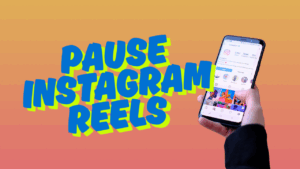What is a copywriter?
A copywriter is a persuasive writer. Their job is to influence a specific audience to buy a product, service, or idea. If you’ve watched the TV show “Mad Men,” then you’re familiar with the copywriters of the 1950s, ’60s, and ’70s in their Madison Avenue offices. They were the ones that crafted persuasive copy that shaped the lives of Americans from New York to Los Angeles to Hawaii and beyond. Now, with social media, including Instagram and TikTok, copywriting is more global than ever.
Copywriting vs Content
Copywriting and content writing serve different purposes.
Content writing (for example: blog writing) builds brand connection through a longer narrative. On the other hand, copywriting requires brevity and, hopefully, quick action on the part of the audience.
Making a career in copywriting is more achievable than you might think, but it requires some quick learning. Here are three tips for beginners looking to get a handle on copywriting:
1. Learn the Craft
Do everything you can to learn the craft of copywriting. That means doing a lot of research into what copywriting is and the role it plays in consumers making decisions.
Here are some books on the topic:
- “Ogilvy on Advertising” by David Ogilvy explores advertising in depth, emphasizing the significance of copywriting in effective marketing strategies. Ogilvy is the well-known director of the world’s leading advertising agency. His name is synonymous with the craft.
- “Tested Advertising Methods” by John Caples is a timeless guide to running a successful advertising campaign. Think of this book as the ultimate guide to captivating your audience and driving results through effective advertising.
- YouTubers Ashlyn Carter and Alex Cattoni are great resources for those that want a continuous stream of knowledge about copywriting.
- Copyhackers and Copyblogger are excellent copywriting blogs that offer real insight and training into the world of copywriting.
2. Study Successful Examples of Copy
Improving your copywriting skills means studying real life examples. Wondering how to do that? It’s simple. Begin by looking at compelling copy that you encounter in your everyday life. Start with a website you admire, one that you find persuasive. Deconstructing web copy is an effective way for you to really develop your skills. Scrutinize every aspect of the website, starting from the landing page. Explore the product descriptions and analyze what makes them persuasive to you.
Combine insight from copywriting blogs and books written about the subject to truly get a handle on what ‘good copy’ is. Then, incorporate those strategies into your own writing.
3. Practice, Practice, Practice!
Now that you understand what it takes to make good copy, it’s time to flex your writing muscles! However, you don’t need to write copy for an actual business just yet. Instead, let’s do some pretend work. Pretend you’re launching your own venture. Start by creating copy for your website as your initial project. Develop all the essential pages—Landing Page, About Us, Services, and the Sales pages—write them all from scratch.
Here are some additional ways to hone your skills:
- Rewrite an existing advertisement.
- Generate three catchy headlines about a subject – then analyze what makes each of them effective and ineffective.
- Craft an advertisement for a movie you recently watched, persuading your audience to go and see it.
- Create a newsletter geared towards selling a product.
- Draft a persuasive sales email about a fictitious product.
- Draft a persuasive political/campaign newsletter.
3 Skills You Need to Be a Successful Copywriter
These are three skills every copywriter needs.
1. You Need to Be a Strong Writer
Copywriters aren’t just good writers; they’re the best writers. They need to craft tight, clear, and persuasive copy that leaves no room for ambiguity. Not everyone possesses this skill—it requires a deep understanding of grammar and strong self-editing abilities.
2. You Need to Understand Your Market
As the voice of your clients, copywriters need to compel their audience to take immediate action. To do this, you need to intimately understand your audience. Mastering this isn’t simple, but it is achievable. You need to first answer these critical questions about your client:
- Who is your client’s target audience?
- What is their unique value proposition?
- Which pain points does their product address for their customers?
3. You Need to Turn Features into Benefits
This principle, once championed by the advertising legends on New York City’s Madison Avenue, is timeless: Copywriters need to transform features into benefits. What does this mean? Features are the things your product can do, but benefits resonate with your audience. Benefits tell your audience why they need your product in their lives. Benefits become indispensable to your audience, enhancing their lives in ways they couldn’t live without.
10 Tips for Copywriters
To master copywriting, you need skill, creativity, and adaptability. Despite the abundance of content out there in the world already, as a copywriter, you’re supposed to write the content that people can’t turn away from. Your content shouldn’t get lost in the sauce. You wield the power to captivate, persuade, and inspire action with your words, if you’re doing it right. Don’t forget that! Here are 10 essential tips to enhance your copywriting skills.
- Know Your Competition
- Define and Embrace Your Brand’s Voice
- Understand Your Target Audience
- Master the Art of Concise Writing
- Harness Your Audience’s Emotions Responsibly: Avoid Manipulation or Fear-Inducing Tactics
- Ruthlessly Edit Your Copy
- Experiment With Your Writing
- Use Correct Grammar and Language
- Stay Up-to-Date on Industry Trends
- Always Look for Feedback to Refine Your Craft
BONUS: Use EVERY Tool at your Disposal to Make Your Client’s Copy POP! For example, try Syllaby.




